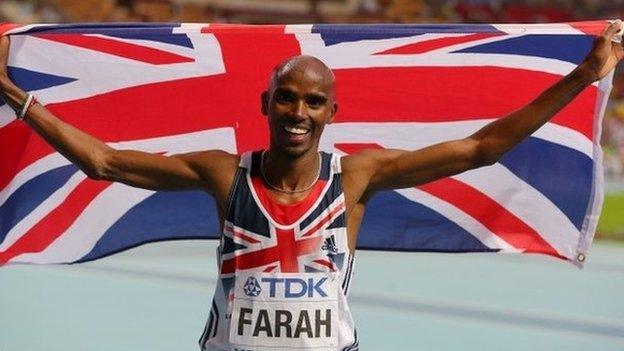The origins of your surnames revealed
- Published
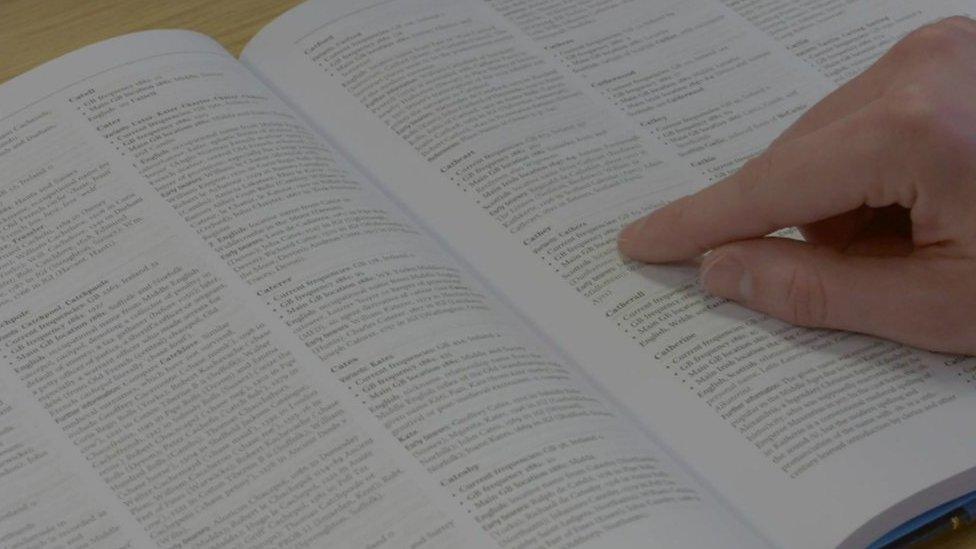
Oxford English Dictionary of Family Names in Britain and Ireland.
The origins of more than 45,000 surnames have been revealed by a new study - giving some people a fresh insight into where their names come from.
The surname database, which will soon be searchable in some libraries, is the result of four years of work led by the University of the West of England.
Its fascinating findings have been published in the Oxford English Dictionary of Family Names in Britain and Ireland.
You have been in touch to tell us the stories behind your last names and ask about the origins.

Marriage
Darren Marriage, 36, from Taunton in Somerset, said he had always thought his surname came from a vicar.
"I am married and my wife has quickly discovered that there will always need to be an explanation given and a joke taken when using our surname," he said.
"I like having a unique surname. My main concern is my family name dying out. My father has four sisters, I have two and so far I only have a daughter. If I don't have a son my family name may end with me."
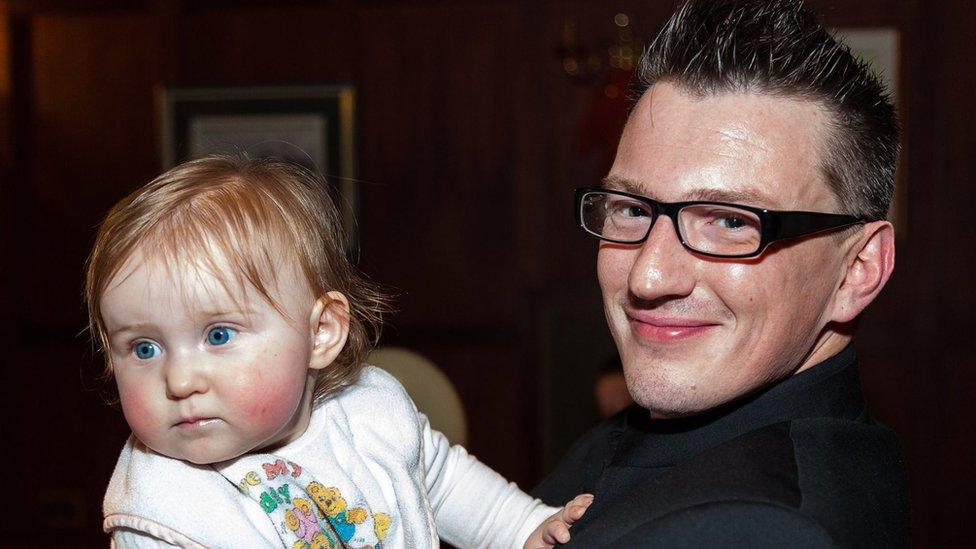
Darren Marriage has a daughter Eleanor Rose he is worried if he does not have a son his rare surname will end with him.
Mr Marriage's concern is justified as there are only 368 people in Great Britain with the same name.
But the name originated from a lost place called Marhach, probably in or near Aythorpe Roding in Essex, according to the dictionary.

Holister
Philippa Holister from Oxford married to become Mrs Parker but has always wondered if her maiden name had once referred to a brothel.
"Apparently it means whore house... but I would like that verified," she said.
"I liked my maiden name but once the clothes brand came out people were constantly adding what they thought was the missing L - even when I explained there was only the one.
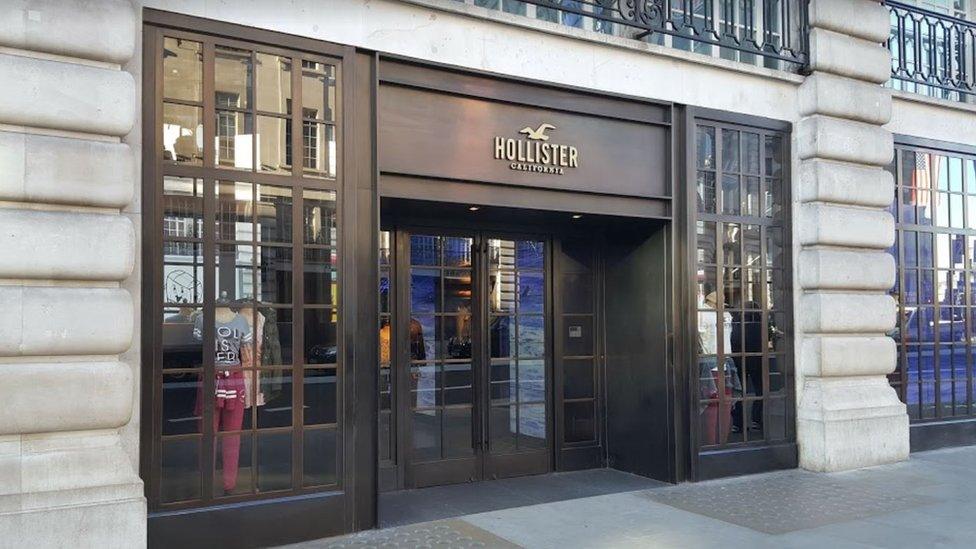
Philippa Holister's name was always being confused with the clothing brand which has two Ls
"I liked its uniqueness. Parker is easier for work though. I rarely have to spell it."
Mrs Parker was along the right lines with the meaning of her name - the dictionary states it comes from a derivative of the old French word holier meaning "adulterer" or ''lecher'.
There are only 636 people in Great Britain with the same name.

Walker
Stuart Walker asked: "Did this name originate from the Shetland Islands and those who 'walked' on the Harris Tweed to soften and flatten the cloth?
And William Walker said: "I believe that it's from a trade in the linen industry. My forename is from my great grandfather."
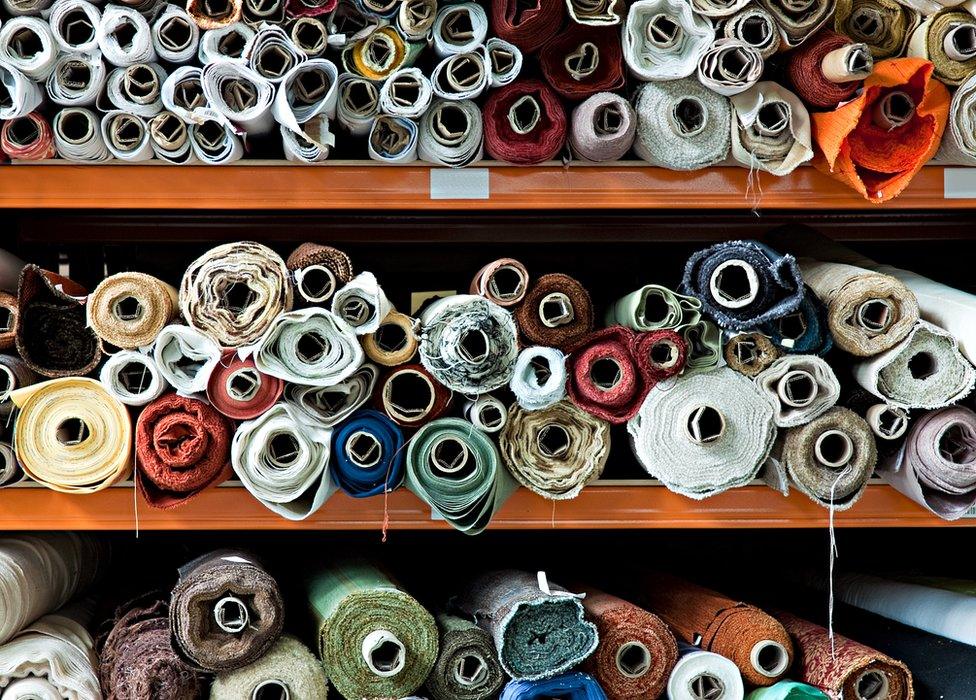
Walker did not originate from people who liked to hike - but from those who worked in the fabric industry
They're right - it's from Middle English and Older Scottish meaning "one who trampled cloth in a bath of lye or kneaded it, in order to strengthen it," according to the project.
There are 133,929 people named Walker in Great Britain today compared with 98,570 in 1881 and they are mainly in the north of England, the Midlands and Scotland.

Amor
Tom Amor said a relative had told him his surname came from the South West of the UK and meant living near, or upon, a moor.
But according to the dictionary his name has more romantic connections.
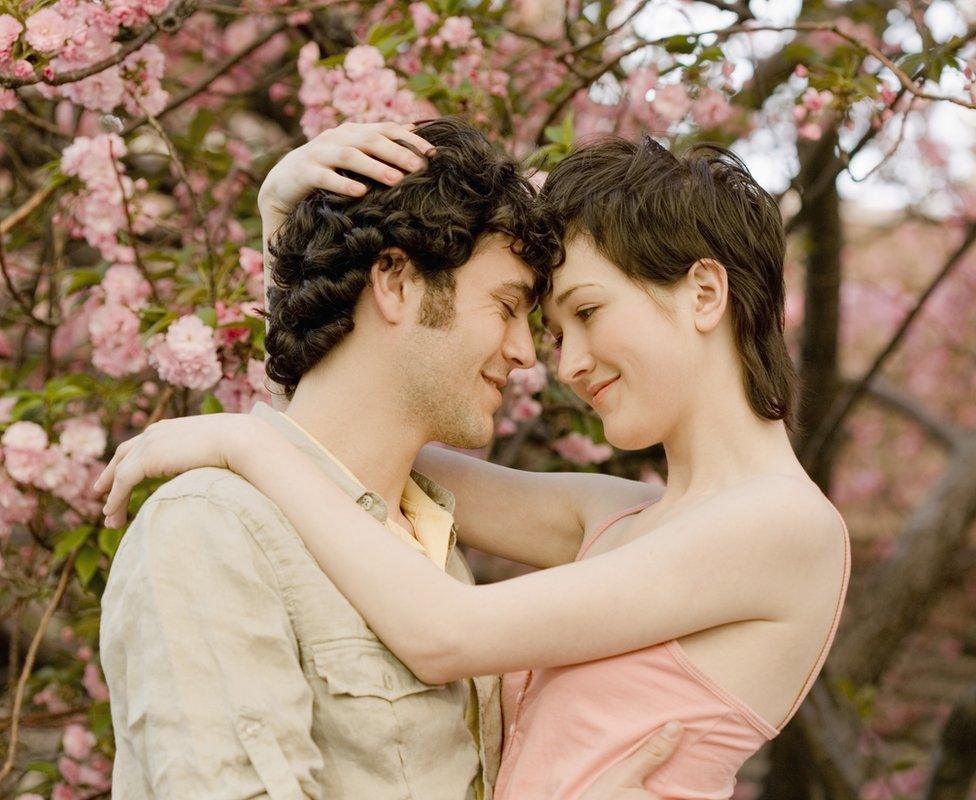
The surname Amor comes from the Latin word for love
It's a nickname from Old French amour and the Latin amor meaning love.
There are only 1,410 in Great Britain and the main location is Wiltshire.

Spoors
Andy Sumpter said: "My wife's family has the name of Spoors, from the far north of England. We have been unable to trace the origin."
It's an English nickname from the Old English spora, for someone who made, sold, or wore spurs.
The surnames Spur, Spore, Spoor and Spoore all have the same origin and they are most frequently found in Yorkshire.
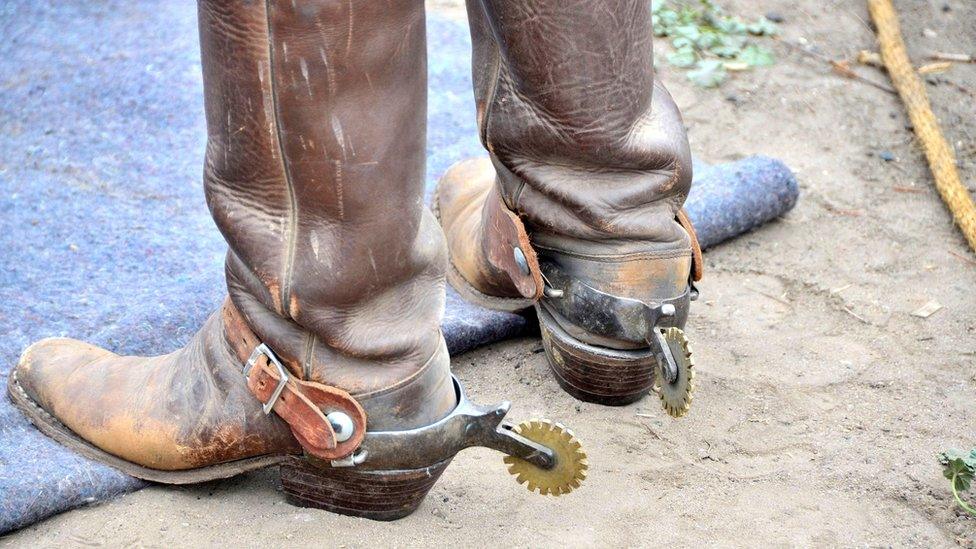
The surnames Spur, Spore, Spoor and Spoore all come from the word for spurs

De'Ath
Rosko De'Ath from Kent asked: "From where does my surname originate? Is it French or Belgian or is it Death that has been poshed up?"
"My wife and I are constantly having to spell it when on the phone and always asked where it comes from."
It is in fact derived from the Old English dēaþ meaning "death".
"Perhaps for someone who played the part of Death in a local pageant," the dictionary states.
"The spellings de'Ath , de Ath , D'Eath, are post-medieval, introduced to dissociate the name from the negative connotations of the word," it said.

Kenson
New surnames are being created all the time, said Prof Richard Coates, who led the dictionary project.
Jeni Kent and her husband Tim Gibson from London merged their last names to become Kenson - which does not appear in the dictionary.
"Neither of us were thrilled with the idea of giving up our surnames and one of us giving up our previous identity felt somewhat unfair," said Mrs Kenson.
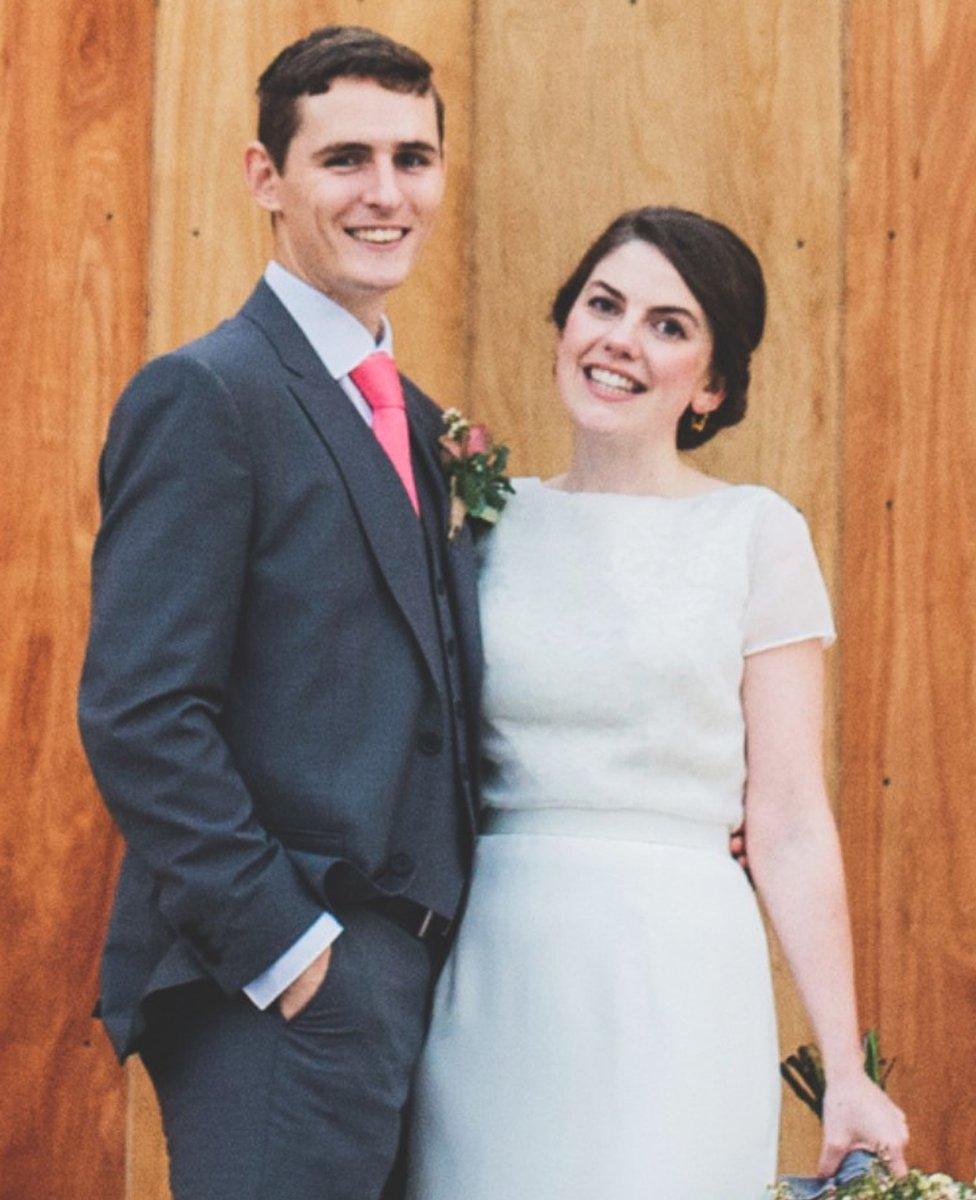
When Tim Gibson married Jeni Kent they decided to merge their surnames to become Mr and Mrs Kenson
"Eventually we decided that as we were starting our own family, the fairest option was to merge our names - both our heritages creating something new.
The pair changed their names by deed poll and have found their new surname to be "a real conversation piece".
"It was definitely the right decision for us and it has become quite a public statement of the equality we have in our relationship," she said.

Greo
Alistair Gray and Clara Teoh from Brighton decided to merge their surnames to Greo as an alternative to getting married.
Mr Greo said: "Our surname is unique - at least the story of its creation is. My partner and I have merged our surnames: Gray + Teoh = Greo. We love it!"
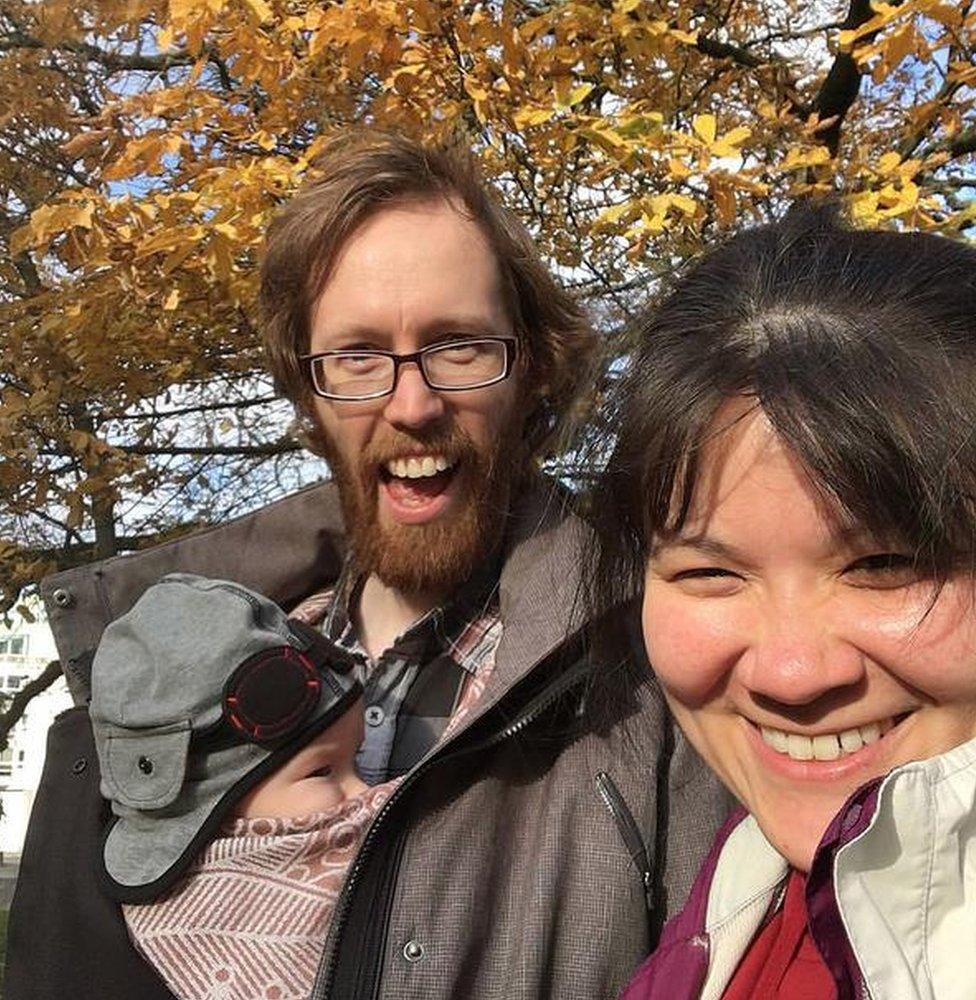
Alistair Gray and Clara Teoh from Brighton decided to merge their surnames to Greo as an alternative to getting married.
"We decided to merge names as we just had a child, so wanted to ensure we all shared the same surname.
"Friends and work have been very supportive, family less so.
"We've taken the policy of not talking about it - it's best just to agree to disagree."

Dingley-Jones
Mike Dingley-Jones said he believed the nine people in his family who share his surname were the only people in the world to have it.
"My mother was born Lillian Dingley in Halesowen and married a Luther Harold Jones, one of six sisters and a brother," said Mr Dingley-Jones.
"The sisters all married and my mother could see that the name Dingley would be lost so she gave it to her three children as an additional Christian name, her brother did not marry.
"Whilst I was a student there was some confusion between me and another student so I used the surname Dingley-Jones."
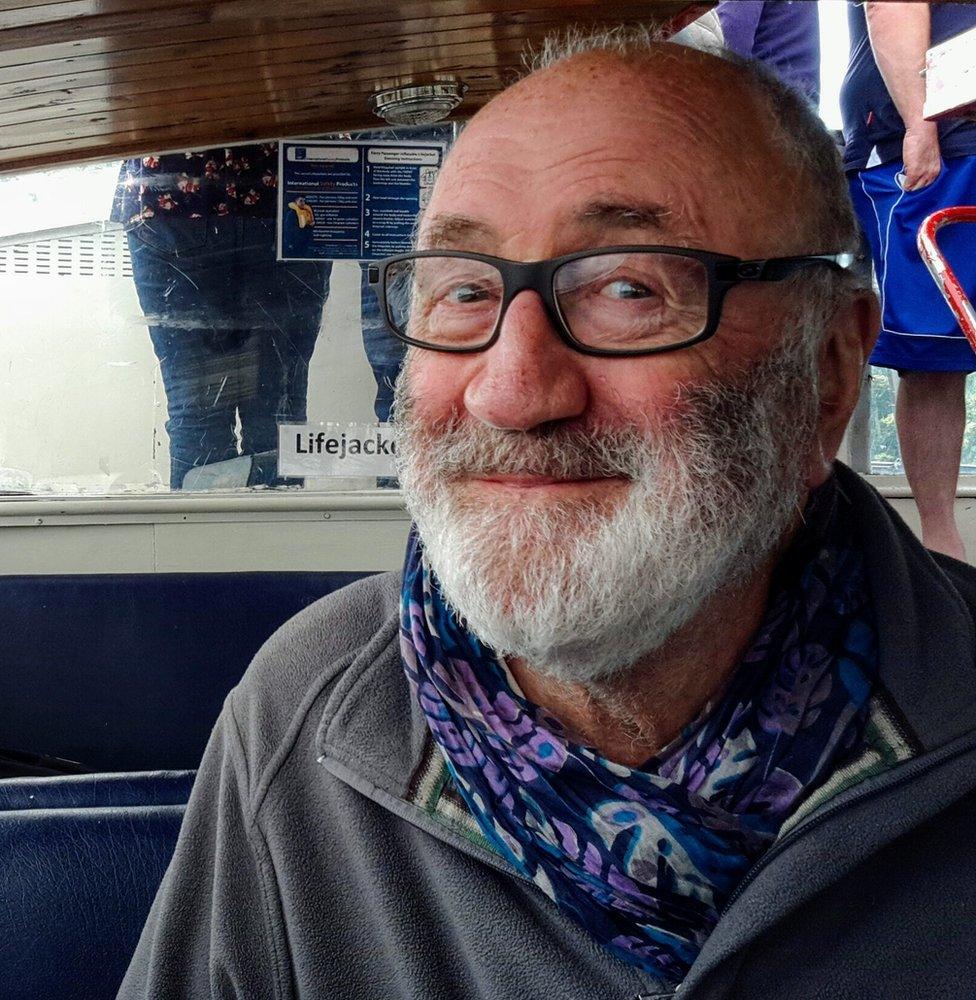
"It is a privilege to be unique, and something which is very special in a world full of situations and names which are commonplace," he said.
"Long may individualism and uniqueness continue."
- Published17 November 2016
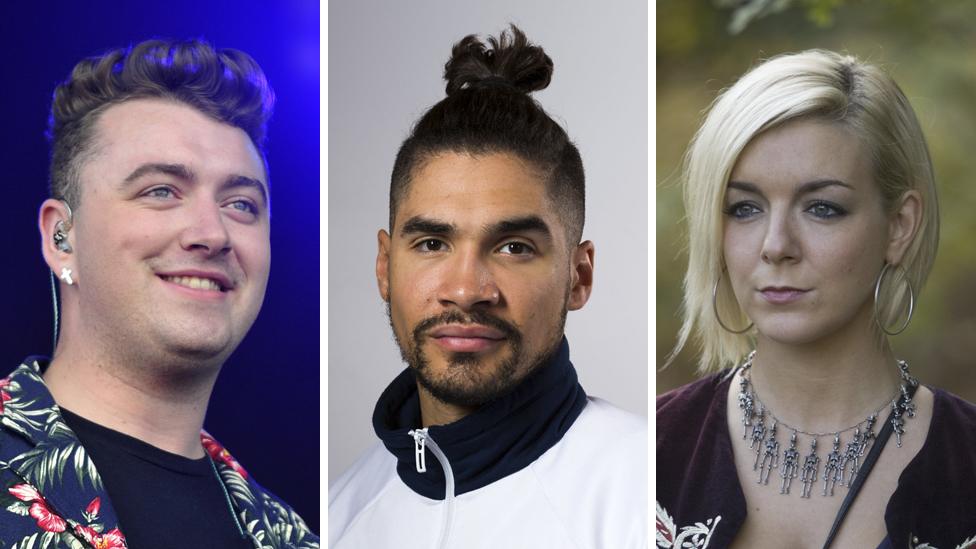
- Published17 November 2016
